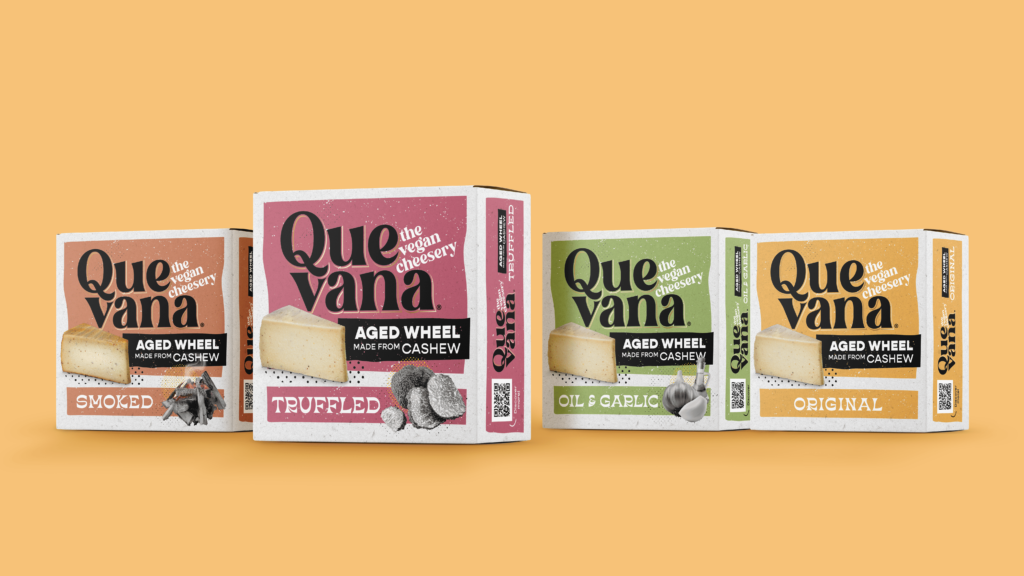Quevana has opened a new 2,400-square-meter facility in the province of Segovia, Spain, establishing one of the largest cashew cheese production sites in Europe. The site, located in the rural municipality of Vallelado, is expected to produce over 400,000 units of fermented plant-based cheese per month.
“This is a historic step in the development of our company”
The facility, converted from a former meat processing plant closed since 2013, will serve as the company’s central hub for the production of its semi-aged, organic cashew-based cheeses. The plant meets IFS food safety standards and is fully certified organic.
Alejandro Álvarez Rubio, CEO and co-founder of Quevana, stated that the expansion addresses the company’s growing operational needs. “This is a historic step in the development of our company and will allow us to keep growing with our existing clients as well as to start working with many new ones which we couldn’t supply before due to production capacity,” he said.

Quevana produces its cheese alternatives by blending chopped cashews into a base liquid, which is then fermented and aged using techniques similar to traditional cheesemaking. The products mature for six to eight weeks in controlled environments before being distributed. The process results in a range of semi-cured cheeses that contain no dairy, cholesterol, or lactose.
The company’s product portfolio currently includes six varieties: Original, Truffle, Olive Oil & Garlic, Smoked, Paprika, and Provence Herbs. These cheeses are available in retailers such as Jumbo in the Netherlands, Continente in Portugal, and selected chains in Spain and Germany.
Scalability drives competitive pricing
In September 2023, Quevana reduced its retail prices by 50% after scaling production, which brought its offerings to price parity with conventional dairy cheeses. This move led to a sharp rise in demand, exceeding the output capacity of its former production site.
According to Quevana, the cashew-based cheeses are produced using minimal ingredients—cashews, salt, and probiotics—and are positioned as lower-impact alternatives to traditional dairy cheese. The company reports reductions of up to 60% in carbon emissions and eutrophication, and a 90% decrease in land use when compared to dairy-based counterparts.
The opening of the Vallelado facility is expected to support continued expansion across European retail and foodservice markets.




